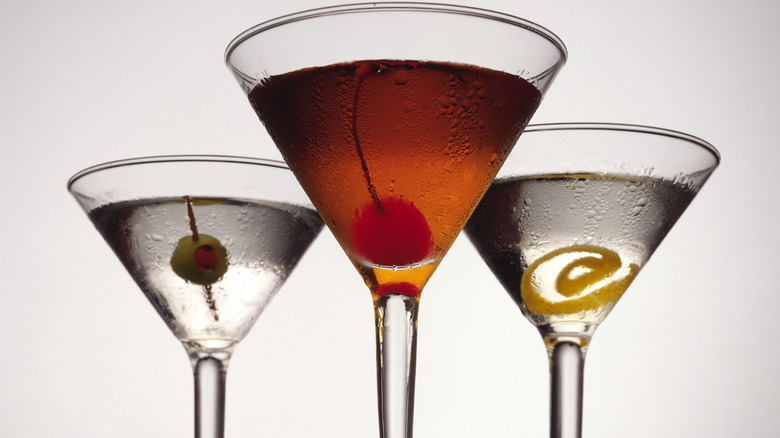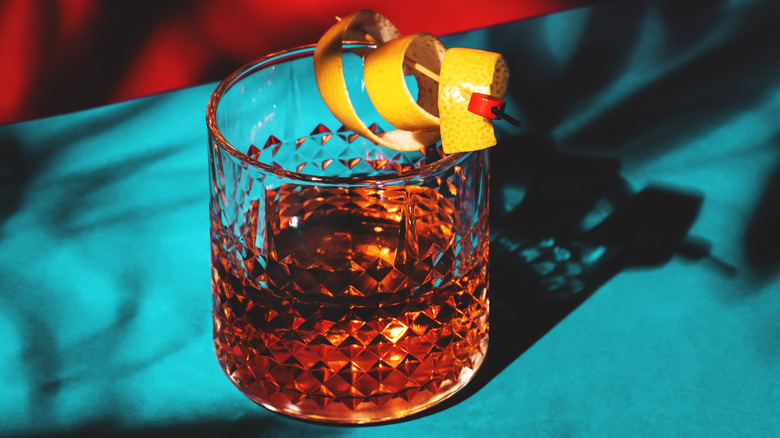The Big Difference Between A Perfect And Improved Cocktail
When ordering a martini, you have more to think about than whether you want it shaken or stirred, or with olives or a twist. For example, do you prefer a perfect martini or an improved one?
"Perfect" is one of those terms that can be confusing. People often use it to refer to something that is flawless or of impeccable quality. But in mixology, "perfect" has an additional meaning. A "perfect" cocktail contains a specific, time-tested ratio between different kinds of vermouth. For example, a perfect martini contains an even split between sweet and dry vermouth. The even blend of vermouth provides a balanced flavor that showcases other ingredients, like the gin.
While the term "perfect" may have an unexpected meaning in mixology, the same also applies to the use of "improved." An improved cocktail isn't necessarily better or mixed differently than a perfect one. Instead, it refers to a variation on the time-honored classic, usually through the addition of ingredients like maraschino liqueur, bitters, expressed lemon peel, or absinthe.
How did we start using the terms perfect and improved?
Whether you prefer the perfect ratio in your martini or an "improved" cocktail, where do these terms come from?
Some credit "The Savoy Cocktail Book," originally published in 1930, for popularizing the use of the term "perfect" to describe a specific ratio of different kinds of vermouth. It included a recipe called "Perfect Cocktail," containing an even split of French vermouth (often dry), Italian vermouth (often sweet), and dry gin shaken and then strained. But the martini isn't the only cocktail with a "perfect" option: The Manhattan and really any other drink featuring vermouth can also be "perfect." Some even extend the term to refer to a ratio of other wine-based ingredients.
Meanwhile, it seems the use of the term "improved" may be older than "perfect." In 1887, "The Bar-Tender's Guide or How to Mix Drinks" contained recipes for "improved" whiskey, brandy, and gin cocktails, adding new garnishes or other ingredients to the OG versions.
The book's author, Jerry Thomas, wrote the first cocktail recipe book published in the U.S., and during his lifetime, he saw mixology evolve from fussy, elaborate punches to the more streamlined, individually crafted "perfect" cocktails we still know. While the martini is simple, small variations can tailor it to your specific taste. And if you want to refine your martini game, it's also helpful to learn how to order a martini like a pro.

